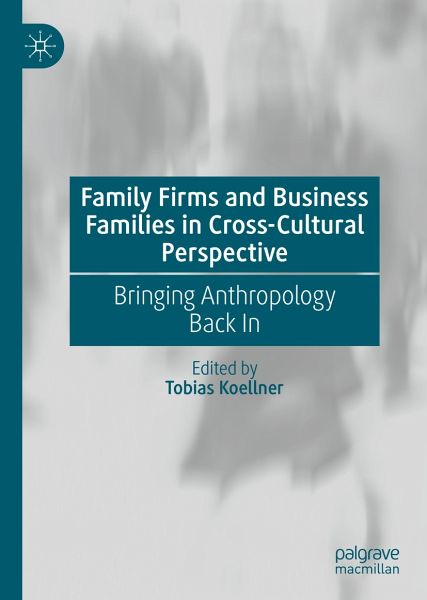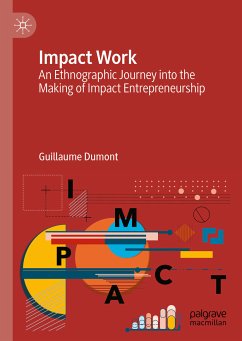
Family Firms and Business Families in Cross-Cultural Perspective (eBook, PDF)
Bringing Anthropology Back In
Redaktion: Koellner, Tobias
Versandkostenfrei!
Sofort per Download lieferbar
104,95 €
inkl. MwSt.
Weitere Ausgaben:

PAYBACK Punkte
52 °P sammeln!
This edited volume provides an anthropological study of family businesses and business families. In previous research on family firms and business families, the comparative cross-cultural approach of anthropology has so far received little attention. As a result, family firms and business families are too often analyzed without considering cultural and kinship differences adequately. Similarly, although the topics of kinship and the economy are central to anthropological analysis, research on family firms and business families has been a marginal topic only that lacks in-depth discussions with...
This edited volume provides an anthropological study of family businesses and business families. In previous research on family firms and business families, the comparative cross-cultural approach of anthropology has so far received little attention. As a result, family firms and business families are too often analyzed without considering cultural and kinship differences adequately. Similarly, although the topics of kinship and the economy are central to anthropological analysis, research on family firms and business families has been a marginal topic only that lacks in-depth discussions within anthropology. This volume breaks the mold by offering new empirical and theoretical insights into discussion about business families and family firms from a comparative cross-cultural perspective. It first addresses how the business family can be defined in different cultures and how kinship becomes understandable as a process and through 'doing family'. In this, the book provides a systematic comparison of the connections between family, kinship and economic activity in different cultures, whereas many of the previous studies have concentrated on only one or a few regions or cultures. It also shows the complexities and challenges when grounding the analysis of economic activity and entrepreneurship in cultural context.
Dieser Download kann aus rechtlichen Gründen nur mit Rechnungsadresse in A, B, BG, CY, CZ, D, DK, EW, E, FIN, F, GR, HR, H, IRL, I, LT, L, LR, M, NL, PL, P, R, S, SLO, SK ausgeliefert werden.












